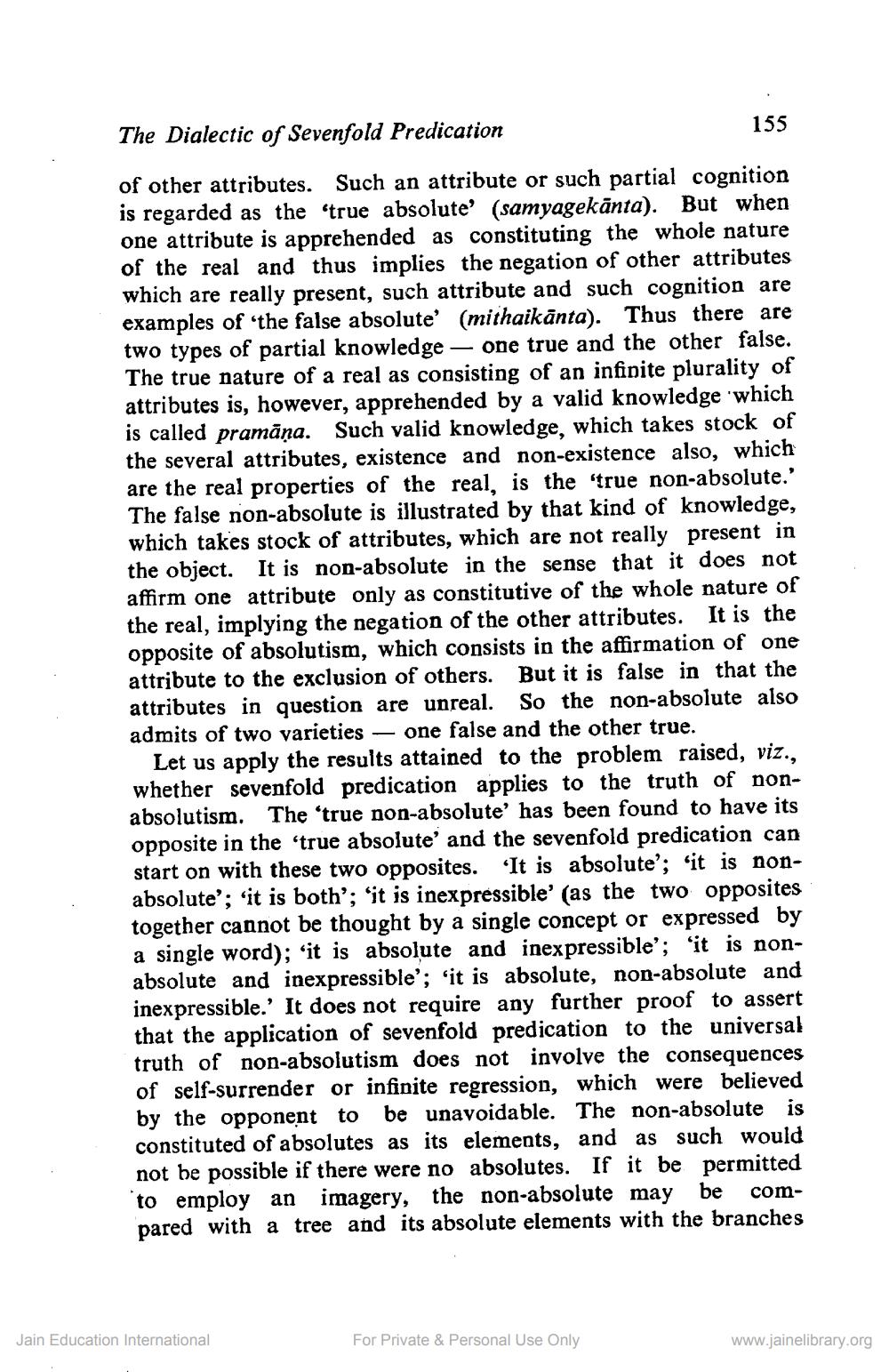________________
The Dialectic of Sevenfold Predication
155
of other attributes. Such an attribute or such partial cognition is regarded as the 'true absolute' (samyagekānta). But when one attribute is apprehended as constituting the whole nature of the real and thus implies the negation of other attributes which are really present, such attribute and such cognition are examples of 'the false absolute' (mithaikānta). Thus there are two types of partial knowledge – one true and the other false. The true nature of a real as consisting of an infinite plurality of attributes is, however, apprehended by a valid knowledge 'which is called pramāņa. Such valid knowledge, which takes stock of the several attributes, existence and non-existence also, which are the real properties of the real, is the true non-absolute.' The false non-absolute is illustrated by that kind of knowledge, which takes stock of attributes, which are not really present in the object. It is non-absolute in the sense that it does not affirm one attribute only as constitutive of the whole nature of the real, implying the negation of the other attributes. It is the opposite of absolutism, which consists in the affirmation of one attribute to the exclusion of others. But it is false in that the attributes in question are unreal. So the non-absolute also admits of two varieties — one false and the other true.
Let us apply the results attained to the problem raised, viz., whether sevenfold predication applies to the truth of nonabsolutism. The 'true non-absolute' has been found to have its opposite in the 'true absolute' and the sevenfold predication can start on with these two opposites. “It is absolute'; 'it is nonabsolute'; 'it is both'; “it is inexpressible' (as the two opposites together cannot be thought by a single concept or expressed by a single word); “it is absolute and inexpressible'; 'it is nonabsolute and inexpressible'; 'it is absolute, non-absolute and inexpressible.' It does not require any further proof to assert that the application of sevenfold predication to the universal truth of non-absolutism does not involve the consequences of self-surrender or infinite regression, which were believed by the opponent to be unavoidable. The non-absolute is constituted of absolutes as its elements, and as such would not be possible if there were no absolutes. If it be permitted to employ an imagery, the non-absolute may be compared with a tree and its absolute elements with the branches
Jain Education International
For Private & Personal Use Only
www.jainelibrary.org




